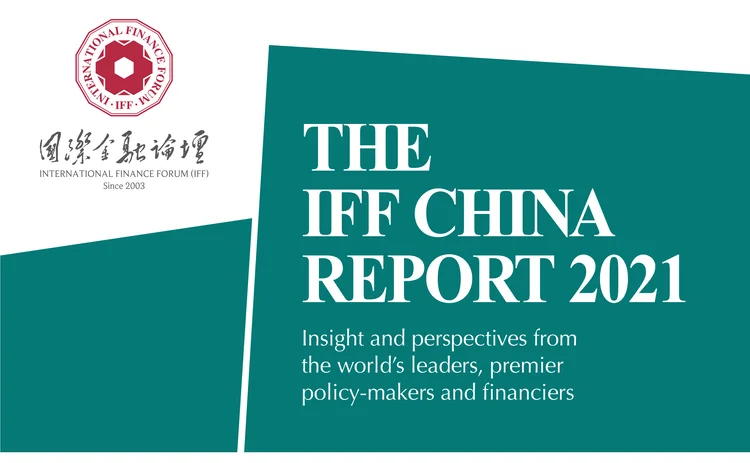
The IFF China Report 2021: Foreword

The Covid-19 pandemic caused a deep contraction in the global economy in 2020 – the greatest fall in output since the Great Depression. Social-distancing and lookdown measures to contain the novel coronavirus led to acute supply chain disruptions, a sharp decline in physical activities and major project delays. According to the International Monetary Fund, the global economy contracted by 3.3% in 2020. China was the only major economy that recorded positive growth due to its relative success in controlling Covid-19.
The economic downturn came at a time when the global economy was already softening because of the trade war between US and China, and rising geopolitical tensions. Many advanced economies continue to grapple with the lingering effects of the global financial crisis of 2007–08, the fight against global extreme poverty is far from over and the world needs to take urgent and more drastic action, and devote more resources to responding to climate change – and to make development sustainable before it is too late.
Under such circumstances, how countries around the world should work together to take on these common challenges is paramount – containing the pandemic and ending the health crisis, protecting the poor and vulnerable groups, maintaining financial stability and supporting post-pandemic economic recovery, and responding to climate change and promoting green growth.
The IFF China Report 2021 presents the insights of global leaders, policy-makers, finance experts, business leaders, politicians and scholars into these important issues under five themes: sustainable development and global economic growth in a post-pandemic era, the Belt and Road Initiative (BRI), green finance, global capital markets and fintech. A key message of the report is that there is plenty of scope for global co-operation across all of these areas, making the global recovery from the pandemic speedy and sustainable.
The BRI represents a key component of China’s engagement with the rest of the world. Through the BRI, China can harness its own development expertise and promote sustainable development in other countries, including investing in infrastructure connectivity leading to win-win outcomes. The report features the fourth annual BRI Survey of central banks, the results of which indicate that central banks view the BRI as important in promoting global growth in the wake of the pandemic. And, while local lockdowns have temporarily delayed the progress of some major projects, it is apparent the BRI will also be crucial in supporting a sustainable and green recovery – with China, now committed to carbon neutrality by 2060, positioned to play a leading role.
We are privileged and extremely grateful for the support of the many who have contributed to and supported the publication of the IFF China Report 2021.We hope it provides you with important insights and fresh perspectives.


Only users who have a paid subscription or are part of a corporate subscription are able to print or copy content.
To access these options, along with all other subscription benefits, please contact info@centralbanking.com or view our subscription options here: http://subscriptions.centralbanking.com/subscribe
You are currently unable to print this content. Please contact info@centralbanking.com to find out more.
You are currently unable to copy this content. Please contact info@centralbanking.com to find out more.
Copyright Infopro Digital Limited. All rights reserved.
You may share this content using our article tools. Printing this content is for the sole use of the Authorised User (named subscriber), as outlined in our terms and conditions - https://www.infopro-insight.com/terms-conditions/insight-subscriptions/
If you would like to purchase additional rights please email info@centralbanking.com
Copyright Infopro Digital Limited. All rights reserved.
You may share this content using our article tools. Copying this content is for the sole use of the Authorised User (named subscriber), as outlined in our terms and conditions - https://www.infopro-insight.com/terms-conditions/insight-subscriptions/
If you would like to purchase additional rights please email info@centralbanking.com
Most read
- Artificial intelligence: key questions for financial supervisors
- Risks facing central banks: action and inaction
- Central bank of the year: Central Bank of Brazil






